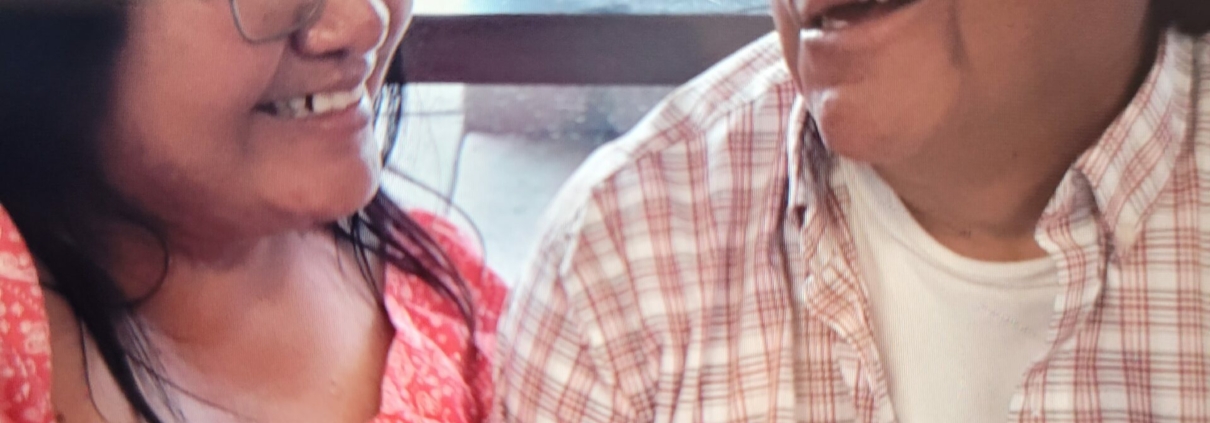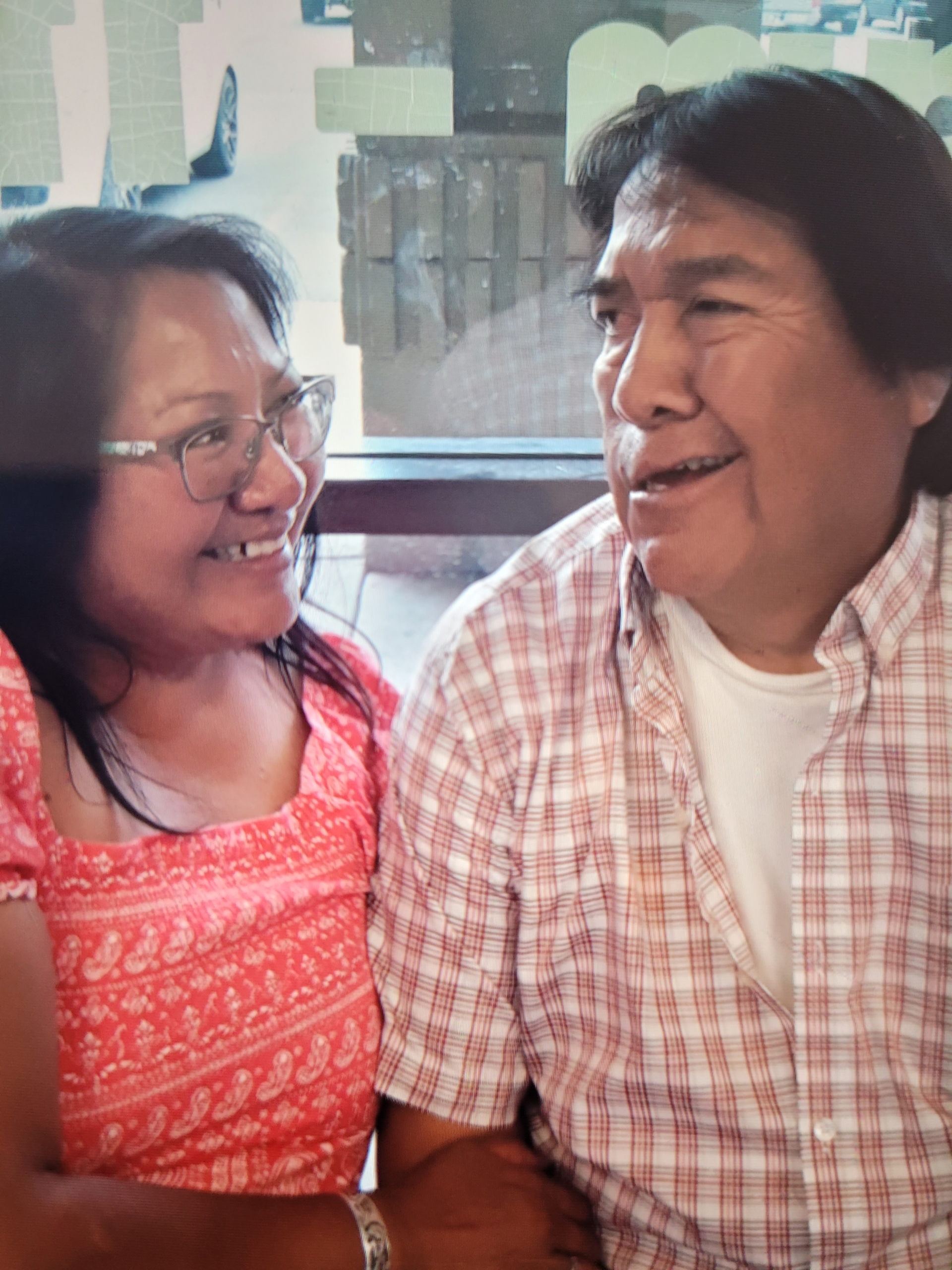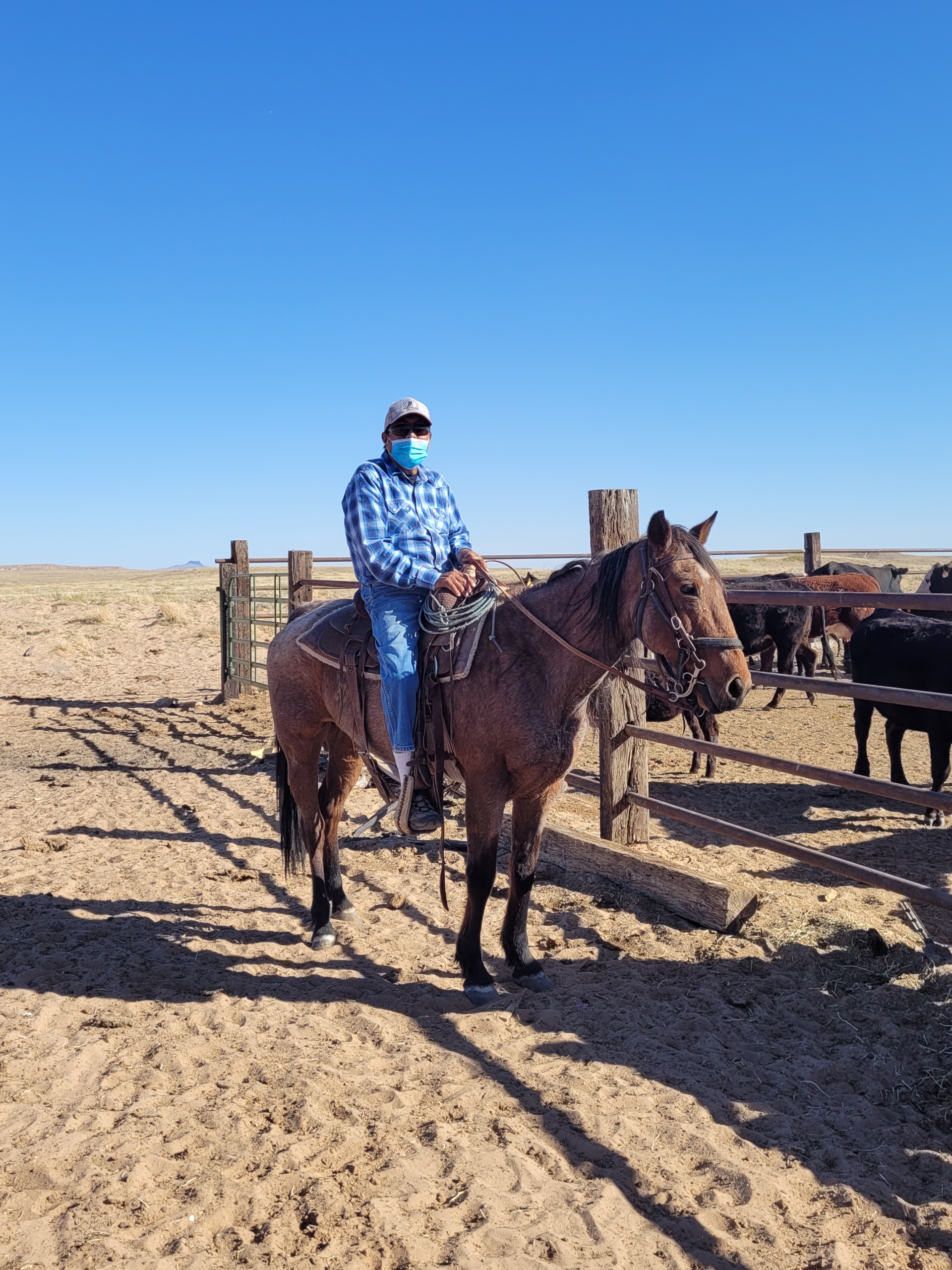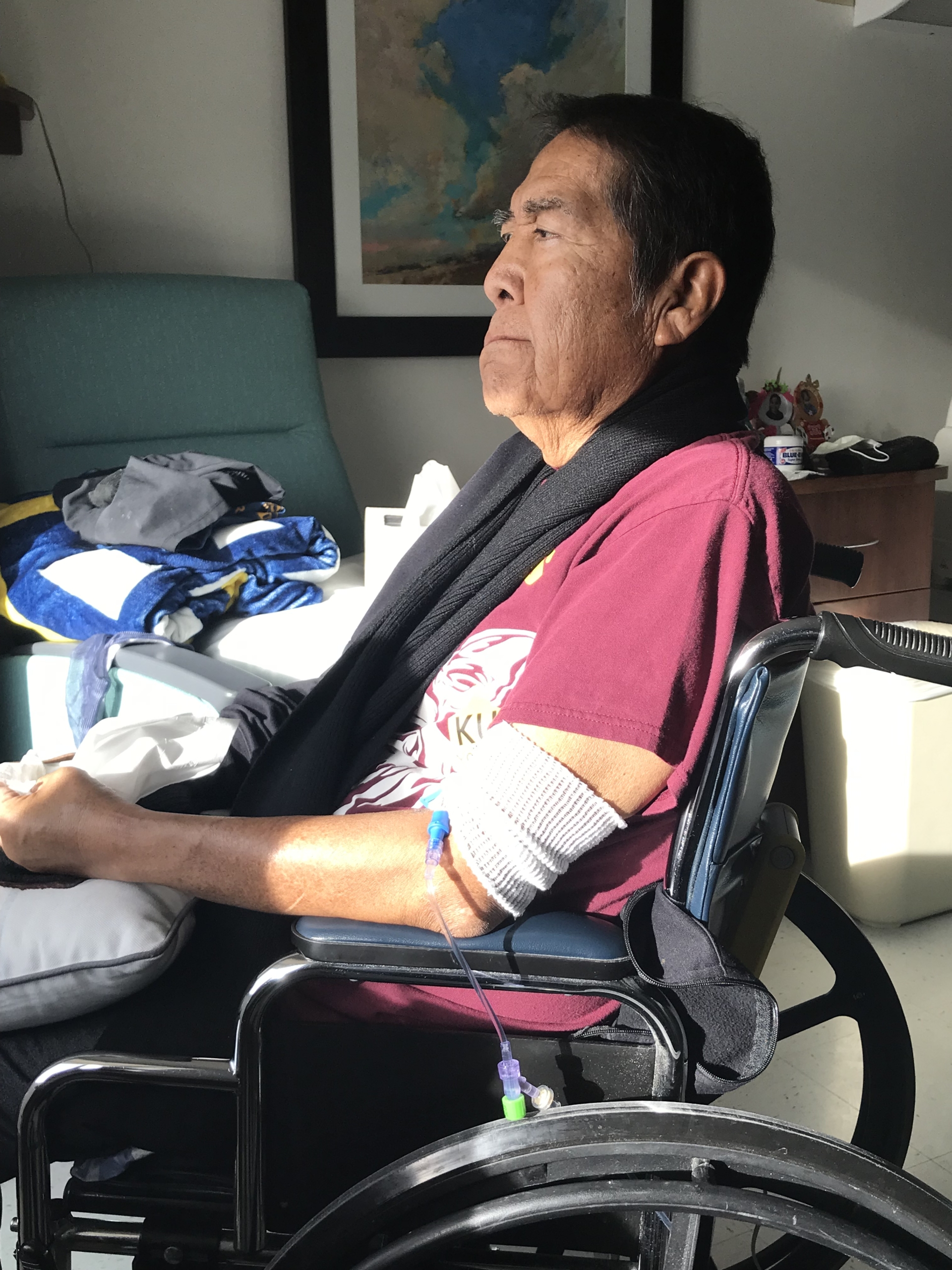Keith Pahovama
Keith Pahovama has always enjoyed his job working as a program manager for the Hopi Tribe. He takes great pride in working with the Hopi Villages in economic development and assisting with obtaining grants that fund the building of community centers. He also assists with coal mine maintenance and obtaining heavy equipment for village projects. In addition to his professional endeavors, Keith enjoys working on his ranch with his family, tending to the cattle.
It was while tending to cattle with his son that Keith’s health began to unravel. Keith and his son were separating cattle on foot. “The cattle backed up, and I was walking backward,” Keith recalled. “I lost my footing and fell backward, landing on my shoulder. I didn’t think I had hit my head. I finished what I was doing and thought I was okay.”
Keith’s wife, Laurinda, tearfully remembered the harrowing weeks that followed. “The following week, he had three different bouts of shaking really bad, and just didn’t seem right. He first went to be evaluated at the clinic. They thought he was having a heart attack and sent him to a facility in Phoenix, and he was discharged the next day. He was so weak and could barely walk. I tried to help him the best I could. I just couldn’t understand why they would discharge him like this. It was so hard.”
“He just kept declining. Around Thanksgiving, he had to use a walker, which he had not had to use before. I took him to see the medicine man. I noticed that Keith was talking ‘nonsense’ and was confused, even trying to eat a hot Cheeto blanket we had in the car due to his confusion. He was having even more difficulty with walking and couldn’t straighten his legs. It was so scary. We ended up calling an ambulance, and he was brought to Flagstaff Medical Center.”
At FMC, Keith was found to have pneumonia, a UTI, and a small intracranial hemorrhage. An intracranial hemorrhage is bleeding inside the skull. The pooling of blood can put pressure on the brain. Patients with this condition must seek medical attention.
Keith was referred to Rehabilitation Hospital of Northern Arizona (RHNA) for brain injury rehabilitation services. The physical, cognitive, and psychological effects of brain injuries vary, so early treatment by a highly trained healthcare team, such as the one at RHNA, is essential.
The brain injury program at RHNA focuses on immediate needs such as:
- Preventing medical complications.
- Increasing levels of alertness.
- Improving and expanding basic communication.
- Decreasing or preventing agitation, irritability, and anxiety.
- Addressing eating and swallowing issues.
- Improving orientation to date, time, and place.
Long-term needs are also addressed, including:
- Establishing memory and attention strategies.
- Improving problem-solving and reasoning skills.
- Advancing social skills.
- Understanding of personal limitations.
- Developing endurance, mobility, and coordination.
- Increasing self-care abilities.
- Advancing toward vocational goals.
- Cognitive training.
In reflecting on his admission to RHNA, Keith stated that his ultimate goal was to get back to his family. “My family is my greatest influence on recovery. My wife, Laurinda, is my strength and my children.”
Keith also credited the staff at RHNA for their impact on his recovery. “The staff helped so much. The whole staff is professional and takes the time to talk with me. They have a genuine interest. They don’t just go off of what your chart says. They get to know you. The RNs and PCTs are really good, and Dr. Balouch is so attentive. I appreciate Missy, RN, who watches over me at night. I know when she opens the door in the middle of the night to check on me, and it brings me comfort.”
One thing Keith really appreciated while at RHNA was the Patient Led Supportive Discussion Group. This patient-driven group meets on Wednesdays and allows patients to facilitate and participate in the meeting voluntarily. They are welcome to express and share their feelings or listen and not share. What is said in the group remains in the group and is not shared with people outside the group. “Talking with other patients helped my recovery and helped me to realize I’m not alone. All of us are fighting to get well and improve,” Keith expressed.
Keith wanted to pass on some advice to others who may be experiencing a brain injury. “Let the experts do what they need to do that are trying to help you get well. Be strong and brave and believe in your upper power/God, and pray to them. We don’t only pray for ourselves but for all those here trying to get better and those caring for us. No matter what, ‘Don’t give up!’ you don’t want to give up. I try not to ask what will happen next and hope nothing else (bad) will. We will get through this.”







Leave a Reply
Want to join the discussion?Feel free to contribute!